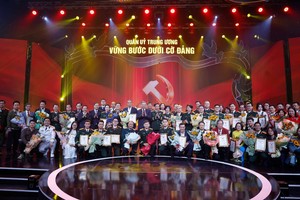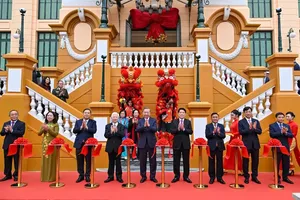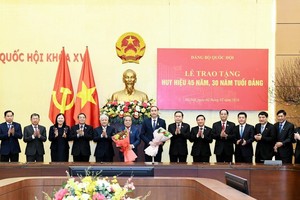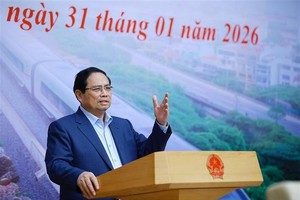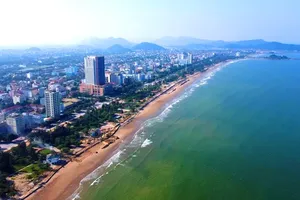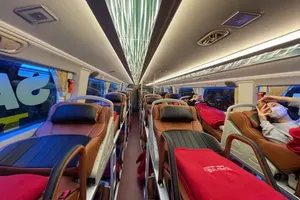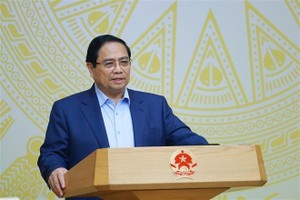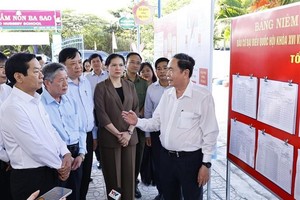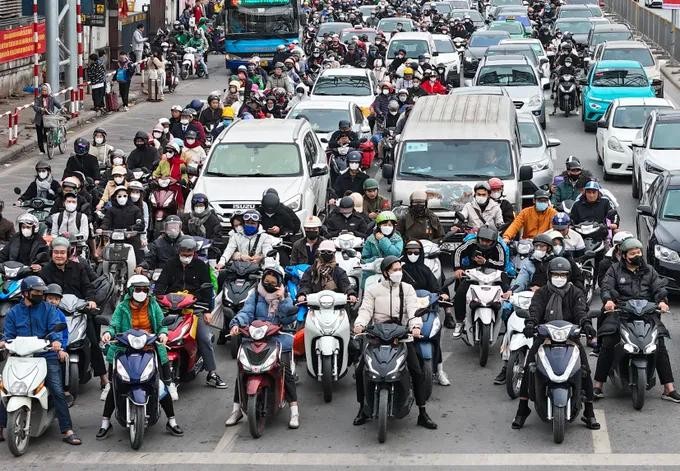
The resolution is expected to be discussed and approved during the 28th session, scheduled for November 26–27.
According to the proposal, the Low Emission Zones (LEZs) will be applied in areas requiring strict environmental protection under the Capital Master Plan particularly where traffic congestion is frequent or air quality has been consistently below average for at least one year, based on data from national and municipal monitoring stations.
Within these zones, Hanoi plans to implement several measures including promoting public transportation and environmentally friendly vehicles, developing pedestrian and cycling spaces, building clean energy refueling stations and infrastructure for collecting and recycling electric vehicle batteries and enhancing traffic culture and limiting private vehicle use.
Noticeably, the capital city proposed key restrictions:
- Ban on gasoline and diesel-powered motorcycles and scooters used for app-based transport services operating within the LEZs.
- Time- or area-based restrictions on other types of motorcycles entering the LEZs.
- Restrictions and eventual ban on cars that fail to meet Euro 4 emission standards from entering the zones.
Accordingly, the city will implementation a road map. From July 1, 2026, the city will pilot the implementation within selected areas inside Ring Road 1, covering nine wards such as Hai Ba Trung, Cua Nam, Hoan Kiem, O Cho Dua, Van Mieu–Quoc Tu Giam, Ba Dinh, Giang Vo, Ngoc Ha, and Tay Ho. From January 1, 2028, expansion of the low emission zones include all areas within Ring Road 1 and selected areas inside Ring Road 2, including wards such as Lang, Dong Da, Kim Lien, Bach Mai, and Vinh Tuy.
Meanwhile, Hanoi will apply support policies for vehicle conversion. To encourage residents to switch from fossil-fuel motorcycles to green energy vehicles (valued at VND10 million (US$379 or more), the city proposes financial assistance for those with permanent or temporary residence in Hanoi for at least two years. Plus, it will provide 20-percent subsidy of the vehicle’s value, up to VND5 million per unit.
Further assistance for low-income families will be provided, amounting to VND20 million for impoverished households and VND15 million for those classified as near-poor.
Each individual may receive support for only one vehicle from the time the resolution takes effect until December 31, 2030.
Additionally, the city intends to subsidize 50 percent of the registration and license plate fees for vehicles that are converted to clean energy throughout the duration of the resolution (which is effective until January 1, 2031). The city will also completely waive these fees for low-income and near low-income households.
